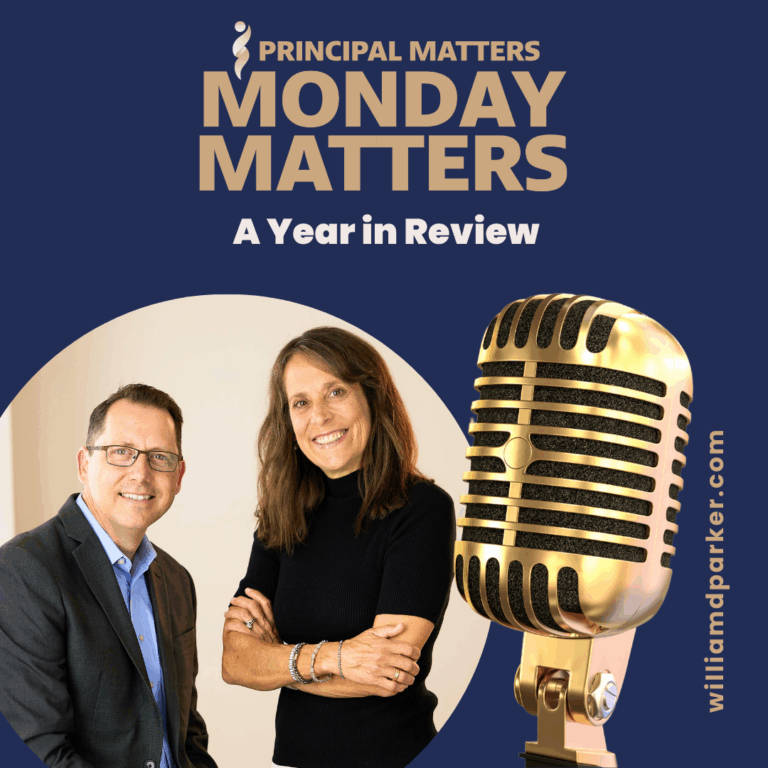Podcast: Play in new window | Download
Have you ever had a dream you’ve been unable to fulfill?

Phil Vischer was born in Muscatine, Iowa, in 1967. He grew up mesmerized by Disney films, Star Wars, and later by MTV. Phil also came from a family that was deeply religious. As he grew up, he longed to see media created that would portray his Christian values in ways that were both appealing and entertaining.
Phil Vischer was a technology wiz, even at a young age. Some of his earliest memories involved making special effects with his grandfather’s home video camera. And when the first Atari 400 personal computer was on the market, his family found a way to buy one for him.
He went to St. Paul’s Bible college in Minnesota, but he dropped out in his second year and began his first company making advertisement videos in 1989. It was during his twenties, that he began to experiment with software that allowed him to do what no one else was marketing at the time, lattice deformation: the ability to make digital images “squishy” instead of just blocks on a screen. This discovery led to his creation of a cartoon character named Larry: a green cucumber with quirky eyes and a toothy smile. Later he created his sidekick, Bob the Tomato, and the VeggieTales industry began.
Actually, the company was called Big Idea Productions, started in August of 1993. Throughout the origin story of the company, Phil Visher had several benefactors whose combined contributions gave him the capitol to take the next steps he needed in making his first 30-minute children’s video with animated vegetables telling stories from the Bible with funny songs and Phil’s brand of sly humor throughout.
For the first time in his life, Phil felt he was on the verge of creating something that matched the dreams he had as a boy. He idolized the stories of Walt Disney, and he thought maybe this was the opportunity to launch something as appealing as the Disney brand but with a focus on the values of his faith.
By 1994, Vischer had a staff of 4 and 50,000 orders for their first two VeggieTales videos, “Are You My Neighbor?” and “Dave and the Giant Pickle.” By November 1996, with 700,000 copies of his first six videos sold, Big Idea Productions now had 15 staff and revenues at $1.8 million. By 1997, with the release of “Madame Blueberry,” Big Idea Productions had 36 staff with $4 million in the bank and no debt.
Enter the leadership team. It was at this juncture, that Vischer decided to bring in some heavy hitters in finance and marketing. He hired a new company President who took over day-to-day operations, and increased the staff to 80 members with 8 million videos sold.
But the rapid growth soon hit several snags. As Phil’s dream began to grow, he began to wonder would happen if Big Idea Productions became successful enough to build an amusement park. Already, families were traveling to their office area outside Chicago to see where ‘Bob and Larry’ were being made.
That same year, Phil and his leadership team took on several new ventures in addition to children’s videos. The idea for a new office headquarters launched a $10 million dollar building project. In addition, an idea for an extended video release soon became plans for a full-feature film.
Also, Big Idea Productions started a new cartoon series as well as creating lots of merchandise. All these decisions moved Big Idea Productions from creating an essential product (children’s videos) to several products while hiring at a rapid rate to keep up with anticipated growth. By July 1999, with the release of the video “Larry & the Rumor Weed,” the company had 150 staff.
From 1996 to 1999, revenues grew 3,300 percent, from $1.3 million to $44 million. It seemed as if Phil’s dreams were coming true – that everything he touched was turning to gold. But here’s the catch. Expenses at Big Idea Productions had grown to $30 million a year, and this was not factoring in the anticipated final budgets of several of the upcoming product releases.
By the start of 2001, Phil began seeing the writing on the wall. The company had 210 staff, but missed their company’s growth estimates by 80%.15% of the staff had to be laid off, which was not nearly enough to cover the losses Big Idea Productions was incurring, but he didn’t have the heart to cut any deeper.
They abandoned the plans for a new headquarters. By the time Big Idea Productions released its first film, “Jonah: A VeggieTales Movie,” the company had to raise the money necessary to finish the movie, and ticket sales did not recoup the costs. Then the President of their partner distribution company died. Releases of Big Idea Production’s other new product lines fell well below projections. And Big Idea Productions was sued by HIT Entertainment, the company taking over from its distribution predecessor.
More cuts followed in the of winter of 2002. By April of 2003, with only 65 staff remaining, Big Idea Producations entered its final chapter of devastating events, HIT Entertainment won its lawsuit against them, and the company went bankrupt.
If you were able to follow that timeline, Phil Vischer’s company went from the launch of a dream to its bankruptcy in 10 years. I’m not sure I’ve ever read a book that so honestly unpacks the rise and fall of a dream. But Phil Vischer does not try to place the blame anywhere else but with himself. How did this young man who launched a dream at age 24 watch it unravel by the time he was 34?
He relays 7 takeaways:
Lesson 1: Never lose sight of the numbers.
Like ignoring your health at your own peril, Vichser paints a picture of a company where he let go of control of the finances as it grew. He asks an important question for creative types vs. managers: Who should call the shots? In his case, he says if he could back in time, the answer would be both. “The balance between creative inspiration and good stewardship is vital to any successful enterprise. Neither can be subordinated to the other without serious and detrimental consequences,” Vischer explains. Whether it is a trusted partner or board of directors, Vischer advises that leaders find others whose mutual interest is seeing you succeed while at the same time being willing to tell you ‘no’ when it’s needed.
Lesson 2: Ignore the voice that says, “You deserve it.”
Your personal commitment to not over-spending (or rejecting the attitude that some work is beneath you) will set an example for others on how you want them spending the company’s time and money. The temptation will be to push expenses up to match your perception of other successful executives. Pretty soon, Vischer, warns you’ll start paying more for everything, and so will your organization. The temptation ‘you deserve more’ should be called out for what it is: selfish. It lures you into a mindset of extravagance rather than humility. Then Vischer applies this to his own Christian faith. Christians should believe anything good they receive is a gift of grace, not something they deserve. You should never think you are better than anyone else. When it comes to money, choose the budget rental car, for instance, and avoid the temptation for more.
Lesson 3: If you successfully identity a need and create a product that meets it in a unique way, you are the expert.
This is an important lesson for Vischer who doubts his own ability to lead a company without bringing in experts – even some with whom he does not share the same values of dreams about the business. His point is to not doubt the value you bring and do not keep people on your team who doubt your value.
Lesson 4: Know yourself.
The simple lesson here is to understand your own strengths and weaknesses. Then you’ll better know who to bring along to compliment your strengths and shore up your weaknesses. This becomes a challenge when Vischer realizes his leadership team is meeting without him and making strategic decisions without his input.
Lesson 5: Bigger is no longer better.
Watching his company grow so quickly gives Vischer a false sense of security. As a result, he commits to hiring more staff and beginning more projects than he has the capacity to fulfill. Fast forward to the present, and Vischer now runs a much smaller business where he operates from a philosophy that smaller and smarter is better and more flexible. And he believes key relationships, not size, build strong businesses and organizations.
Lesson 6: If I did it again, I would let my business model determine my pay scales.
Vischer makes the mistake of believing he can only attract talent if he pays equivalent salaries compared to other industry leaders at the time, like Disney. In retrospect, he would have rather attract team members committed to the mission, even if he has to pay below market value to grow slower and with more stability.
Lesson 7: Build a team that rows in the same direction.
Vischer tells a painful story of a long meeting with his company’s leadership team where they are discussing the mission of Big Idea Productions. When Phil voices the mission of his company: to create videos that proclaim biblical truths for children, the CEO at the time says he did not agree with the mission. Looking back, Vischer realizes he was sharing his dream with audiences and investors but had not instilled that same mission and core values within his own organization.
Final thoughts…
In the last chapter of the book, Vischer gets even more personal about the loss of his dream. He reveals how much of his identity was wrapped up in the ten years of creating and growing Big Idea Productions. He was being invited to speak on television, in large churches, and was covered in Inc. magazine. His mission to ‘make a difference’ in the world had become all consuming.
Ironically, he realizes his work has become even more important than his own spiritual growth. In essence, his dreams were lost. But in this loss, he rediscovers the joys of what matters most. He begins to transition from a mindset of ‘making a difference’ to simply finding satisfaction where God has placed him and looking for the ways to joining God in the work he sees around him.. By the end of the book, Vischer makes a point I’m not sure I’ve seen anyone else make in a business story. When he was running Big Idea Productions, he had read ‘Built to Last’ – the book that coins the acronym BHAG ‘Big Hairy Audacious Goal.’ Phil realizes that his pursuit of a BHAG became more important that his pursuit of what matters most to him, primarily his faith.
I’ll quote him here: “I am very serious when I say this, beware of your dreams, for dreams make dangerous friends. We all have them — longings for a better life, a healthy child, a happy marriage, rewarding work. But dreams are, I have come to believe, misplaced longings. False lovers. Why? Because God is enough. Just God. And he isn’t enough because he can make our dreams come true — ”
Let’s Wrap This Up
As I read Phil Vischer’s book, I had to ask myself what lessons I could apply to my own dreams. And as you lead your school or organization in the coming year, let me encourage you to reflect on lessons from someone who saw lived the fulfillment and loss of his own dreams. For many people 2020 has been a year of lost dreams.
Schools are going into a new year with tighter budgets. School leaders are still facing the uncertainty of how much longer they will be managing the protocols of a pandemic. For many students and families, the situations are equally stressful. For those who have lost loved ones to the pandemic, the loss is bitter and personal.
So how do you keep pursuing what matters even in the face of so much uncertainty? Phil Vischer’s book is a helpful glimpse at some common sense reminders on how to keep your eyes on your purpose, remaining optimistic while also facing the future with wisdom.
Now It’s Your Turn
As you step into a new year, consider these questions as you think about plans for yourself and your own school or organization:
1. How do you not lose sight of what matters most as you pursue your dreams and goals?
2. How do you keep perspective on the real data driving the outcomes of your organization and not become disoriented by what you ‘think’ is happening?
3. How do you resist the voice telling you that ‘you deserve it’ when you want to something else that may not be good for you or your team?
4. How do you trust your own expertise while also trusting others who can help where you are weak?
5. How can you build a team of others with like-minded goals and core values so that you are rowing in the same direction?
I don’t know if you have ever pursued a dream you have lost? Or maybe you are reaching for a dream now you’re not sure if you’ll ever reach. As you look at lessons from Phil Vischer’s story, keep in mind how important it is to keep your dreams in perspective. Don’t let them control you. Keep what’s most important in mind even as you move toward reaching goals in 2021.




